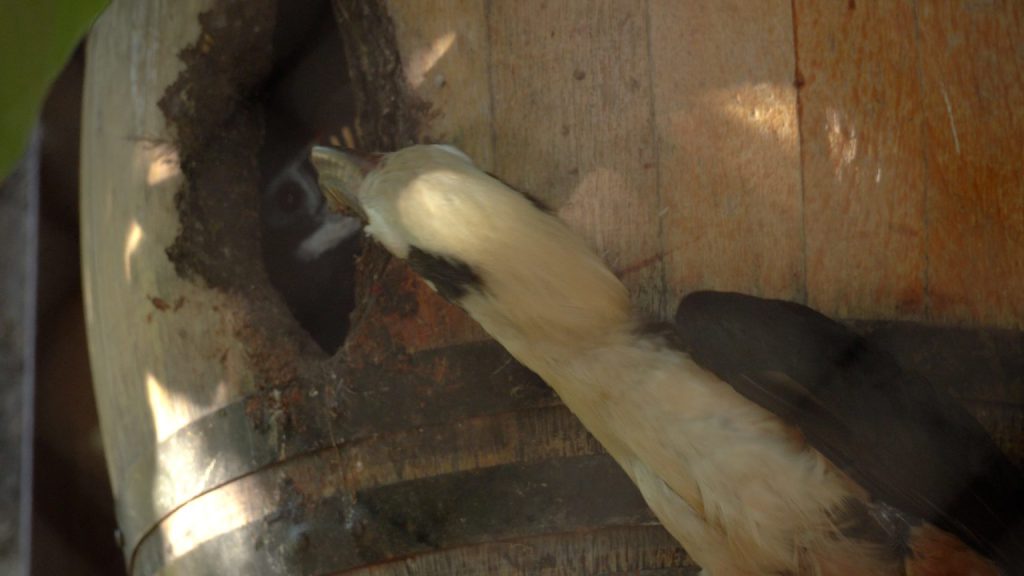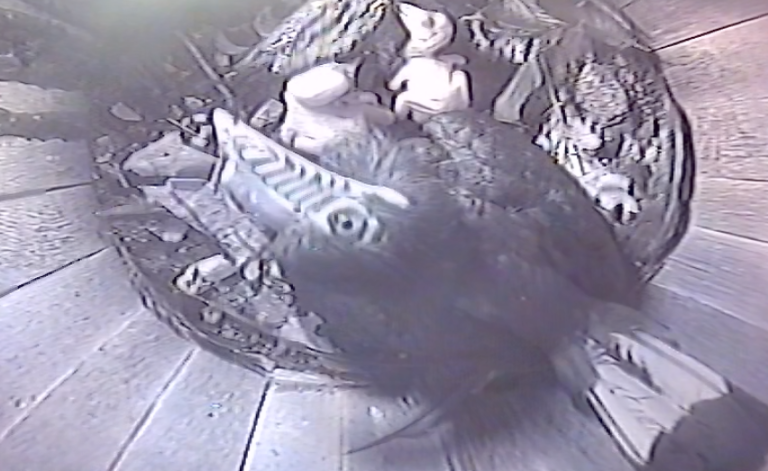With their flamboyant beaks, colourful plumage, shrill calls and unusual behaviour, hornbills are one of the most charismatic groups of birds in the tropics. But their peculiarities have not prevented most of these species from being threatened with extinction. Among them is the smallest hornbill in the Philippines: the Visayan hornbill, also known as the Philippine tarictic hornbill.
This species is native to the Asian islands and is listed as “Endangered ” in the Red List of the International Union for Conservation of Nature (IUCN) and it is estimated that there are no more than 1,200 specimens in their habitat. BIOPARC Fuengirola has been working to protect them since 2015.
BIOPARC Fuengirola has cemented itself as one of the most active animal parks in the conservation of hornbills in Spain, with the birth of two Visayan hornbill chicks. A long-awaited event for the entire technical team of the park. The peculiar courtship and laying of hornbills, coupled with the character of these birds, has meant that for years laying has been unsuccessful. The experience they have gained over the years, both the hosting couple and the park team, has ensured that this time it has been successful.
During these days, visitors can watch how the male provides the female with food through the only opening of the nest and how she takes it to feed her young. In the coming weeks, the team expects the chicks to be ready to go out to the facility and live with both parents outside the nest. Now, in the outdoor installation, equipment monitors each and every behaviour that may occur.

Four different conservation programmes dedicated to hornbills
In 2018, Bioparc Fuengirola expanded the number of ‘ex-situ’ conservation programmes in which it participated within the EAZA with three EEPs dedicated to the preservation and protection of three hornbill species: the lesser hornbill, the lesser spotted hornbill and the black-headed hornbill. These were in addition to the work already done with the Visayan hornbill. The Malaga animal park is one of the most active in Spain in the conservation of these exotic birds, housing four of the sixteen species described today, all of which are endangered.
Hornbills are threatened by habitat destruction. The clearing of large areas of rainforest has reduced the forests on which these birds depend for breeding, food, and shelter.

